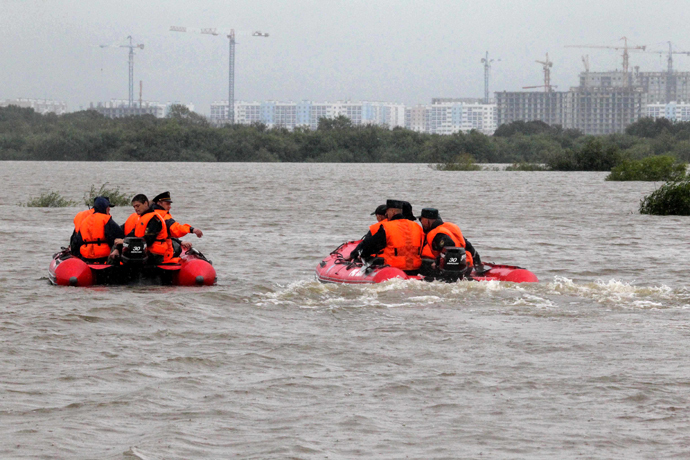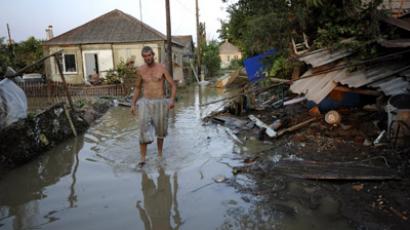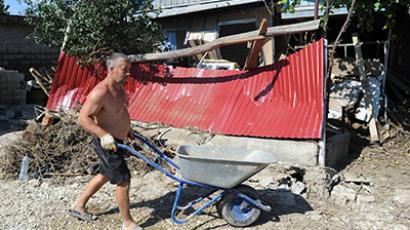Russia’s Far East hit by biggest floods in 120 years
Up to 100,000 people may be evacuated from flood-hit regions in Russia’s Far East. Water levels at local reservoirs have already reached historic highs, and officials say the floods raging in the area are expected to continue rising even further.
Floods are currently affecting over 32,500 locals living in over
5,000 homes. Over 17,000 residents have already left the area
over the disaster.
Viktor Ishayev, Russia’s Minister for the Far East, said that
"in the worst-case scenario up to 100,000 people could be
evacuated" from the Amur, Khabarovsk and Jewish Autonomous
Regions.
The water level in the Amur River near Khabarovsk has risen 17
centimeters in one day and now stands at 657 centimeters, the
regional office of the Emergency Ministry reported. Authorities
fear that by August 25, the water level will reach the
seven-meter mark.
Dozens of bridges have been swamped by the waters, complicating
the evacuation.
The area adjacent to the Amur River is experiencing its highest
water level ever. However, observers indicated that the situation
remains relatively calm.
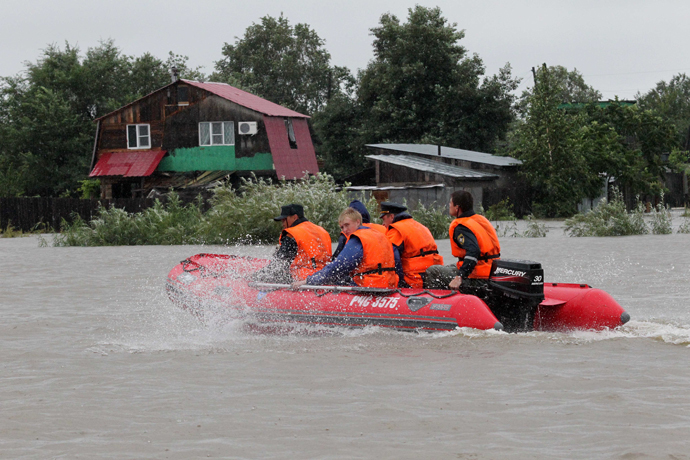
“There is no panic like there was in Krymsk,” one observer
told Gazeta.ru, in a reference to the flood in a Krasnodar Region town two years that left nearly 200 dead and thousands homeless. “People are in combative mood. Maybe
the locals are more used to the harsh weather conditions here.
That’s why they are calm, and are treating the situation with
understanding. But of course all is quite horrible here.”
Authorities are dealing with the consequences of the disaster, with over 200 tons of relief cargoes being delivered by aircraft to the affected region.
The water is rising in the streets of Khabarovsk, where local drivers are trying to negotiate the floods:
30,000 people are mobilized to cope with the flood with the help
of 5,000 vehicles, boats and aircraft.
Emergency workers are flying over the affected area, monitoring
the water level around the clock. They are asking people to leave
their homes, but for those who didn’t have time to quit the
region, boat evacuation is planned.
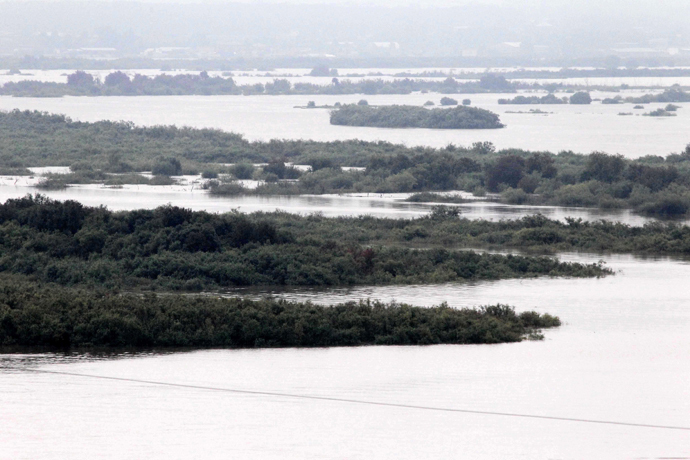
Modern anti-flood technologies are also being used. Thirty
water-filled flood control dams have been delivered to the
region, along with humanitarian aid.
Each dam is 25 meters long and can be easily erected on any type of surface, replacing over 1,000 sand bags.
Medics have begun vaccinating to prevent an epidemic of infections such as typhoid fever and hepatitis, while locals have started drinking only boiled water as a precaution.
"The damage is extensive, but the most significant achievement
is there have been no casualties ... we cannot relax, there is
still a lot of work to be done," Russian President Vladimir
Putin said in a televised address.
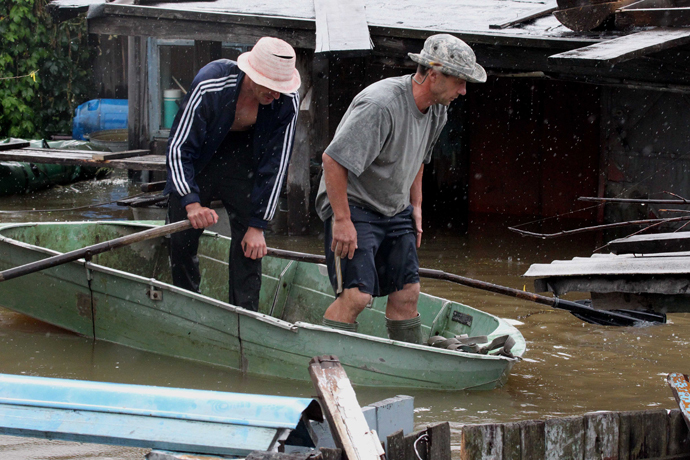
The disaster has yet to reach its predicted peak on August 19,
meteorologists and emergency workers warned.
The floods have been triggered by a month of heavy rain, and
aren’t set to stop until the beginning of September, the head of
Russia's hydrometeorology monitoring service told RIA Novosti
news agency.
“This zone is unique in terms of its vastness: over 2,000
kilometers from west to east,” indicated the head of the
National Center for Crisis Situations Management of Russia’s
Emergency Ministry Vladimir Stepanov.
The disaster has dealt a blow to the area’s budget as well, with
the potential losses measuring up to 2 billion rubles ($60
million), President Putin’s envoy to the region said.
